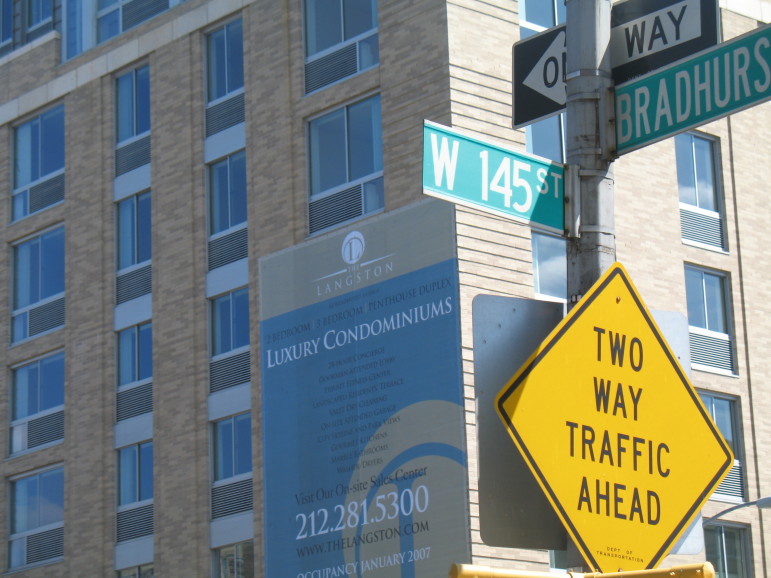
Jarrett Murphy
Harlem, 2007
For a decade or more New York has been engaged in a running debate about gentrification, conducted across editorial pages, at public meetings, in barber shops and around dinner tables.
It’s not usually been a simple argument about whether gentrification is good or bad. We’ve wrestled over what gentrification is, whether it exists, what causes it, and what the net result for the city is from gentrification’s complex mix of positive and negative impacts—a mix, incidentally, whose specific components we also disagree about.
It’s a disagreement where the participants don’t always fall into neat, predictable categories. Some low-income people of color welcome the changes they see in their neighborhood. Some white people of means are fiercely opposed to personal or policy decisions that foster gentrification. A few veterans of community empowerment during the fiscal-crisis years, when parts of the Bronx and Brooklyn battled for their lives, have told me that the worries about gentrification ignore the reality facing most of low-income New York.
City University of New York Graduate School of Journalism students Marguerite Ward and Carlotta Mohamed sent in this video featuring the thoughtful commentary of people in Harlem’s Little Africa neighborhood. It echoes what residents and reporters have heard in Williamsburg, Bushwick and elsewhere.
Below, we’ve tried to list most of the major schools of thought about gentrification. Of course, even this breakdown glosses over important distinctions among different analyses. But which one comes closest to capturing how you feel? (Tell us below via a comment if you have a totally different take, if your take has changed over the years or if there’s something else we should be talking about.)









4 thoughts on “Where Exactly Do You Stand on Gentrification?”
It’s interesting that you use the Langton Building in your photo located on 145th Street. This corner was left abandoned for decades. Let’s note the building had scaffolding all around it for years due to construction defects. If people decide to move into a neighborhood because they think they can afford living there and they meet the salary requirements is that gentification? Is it wrong that the consumers in this building have had a major increase in maintenance due to no oversight by the city & the buildings department. Today walk by this building and you will see the Sutton, named after Percy Sutton surrounded by scaffolding because bricks fell from the building. Is Congressmember Rangel accountable for this? Does his staff respond or address these issues? NO Same goes for Assembly Member Farrell’s office.
Pingback: Where Exactly Do You Stand on Gentrification? | Marguerite Ward
You can’t stop gentrification or even clearly define it. Better to have higher income people wanting to live in NYC than not wanting to live here. I know the insane housing price run-up in Brooklyn is pricing people out. (Is it a bubble? I think so.) But you can’t legislate against it .I live on the east shore of SI which is already ‘gentrified’ in that we have the 2nd highest income after Manhattan.
Talking about gentrification in New York City is like the weather: whether you like it or not is subjective, but it isn’t going away. The important questions are what’s causing it, and how bad the forecast looks. Right now, in neighborhoods like Crown Heights, Bed Stuy and Bushwick, a tsunami is coming, and it’s being fueled by real estate speculation, which is in turn fueled by macroeconomic and social trends that won’t fit into this comment box. Just like we manage threats from natural disasters, we need more focus on resiliency, as well as on building relief infrastructure to be prepared when resiliency fails.